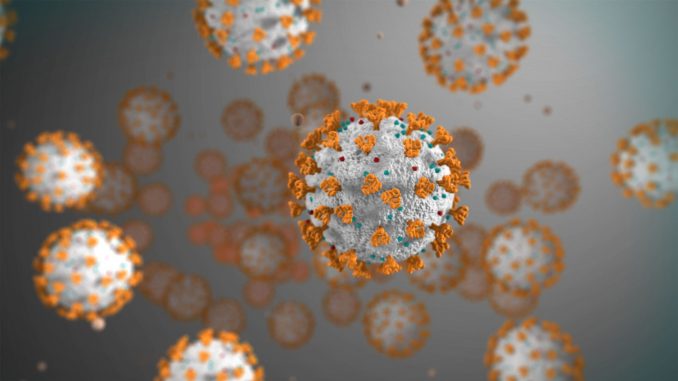
COVID-19 is the highly contagious disease caused by a new strain of coronavirus. The disease has spread to all corners of the globe in less than three months. There is no cure or vaccine as yet for this disease. But you can stay safe by practising a few precautionary measures. Since this is new virus and there is no history to fall back on, there are a lot of questions that most people have regarding the spread and nature of this virus. Here, we seek to provide a clearer picture about the disease by answering a few commonly asked questions. In order to address all your queries, TheHealthSite and DocsApp have joined hands for a webinar with Dr. Gowri Kulkarni, MBBS, MRCGP (INT). The webinar, which is live on Facebook @indiacom now, is a Q&A session focussing on the latest COVID-19 trends.
Is COVID-19 different from the coronavirus?
Coronaviruses is a family of viruses that cause many diseases, some mild and others serious. But the COVID-19 is a highly contagious disease caused by a new strain of coronavirus that is believed to have jumped from an animal to humans.
Can you get the virus if you go grocery shopping?
No, you will not get the virus if you go grocery shopping. But yes, you do not know who has visited the shop before you or if any infected person has left any microdroplet behind on any surfaces in the shop. So, practice social distancing and wash your hands after you come back home, change your clothes and wash them immediately and through away any packaging or sanitise them immediately. This goes for home delivery items too.
Can I get the virus from my smartphone?
If you always keep your smartphone in your purse or pocket, then it may not carry the virus. But this is one gadget that you hold close to your face. You may also unconsciously place it on surfaces that may have the virus on them or your unclean hands may place the virus on your phone. So, it is better to disinfect it.
What are the symptoms of COVID-19?
The most common symptoms of COVID-19 are fever, body aches, tiredness, sore throat and dry cough. You may also experience nasal congestion and a runny nose. Shortness of breath and pneumonia sets in as the disease progresses.
How likely am I to catch COVID-19?
If you take the proper precautions, you are likely to stay safe. But in COVID-19 outbreak areas, people have a higher likelihood of catching the infection if there is community spread.
Who are at risk?
COVID-19 can infect anyone irrespective of age, gender and background. But older people and those with chronic health conditions, like diabetes, hypertension and heart diseases, are at a greater risk.
Who should seek medical attention?
Anybody with travel history to COVID-19 hot spots or contact with a person with travel history must seek medical help. If you have any symptoms like fever, cough and difficulty breathing, call a doctor immediately. He will guide you further.
How does the virus spread?
This is a highly contagious virus that spreads via microdroplets that are released in the air when an infected person coughs or sneezes. These droplets may also land on objects and surfaces and other people can get the virus after touching those surfaces.
What are the preventive measures?
Wash your hands frequently with soap and water. Work up a lather and rub your hands together for 20 seconds. Avoid crowds, maintain social and physical distancing and practise respiratory hygiene.
Do we need to wear a mask?
No, it is not really required. Wear it only if you are visiting a sick person or if you are a health care professional working in high-risk zones. Wear it also if you have any symptoms like cough and sneezes. This will protect others.
How much distance must we maintain with others?
You must maintain a distance of 1 meter or 3 feet from people because you don’t know who is a carrier of the COVID-19 virus.
Can COVID-19 be transmitted through the air?
This disease spreads via contact with respiratory droplets rather than through the air. But some studies suggest that respiratory microdroplets may stay suspended in air for some time before it falls to the ground.
Should I use hand sanitisers instead of soap and water?
Alcohol-based hand sanitisers kill viruses. But use this only when you do not have access to soap and water.
Are there any medicines or therapies that can prevent or cure COVID-19?
There is no cure or vaccine yet for this disease. Clinical trials have started in many placed across the world and scientists are also looking at existing drugs for a possible cure. But nothing is certain yet.
Are there any preventive medicines?
No. Other than practising the preventive measures, there are no drugs that can help prevent this disease.
Is COVID-19 the same as SARS?
No. The coronavirus that causes COVID-19 and the one that causes Severe Acute Respiratory Syndrome (SARS) are related genetically. But the diseases they cause are quite different. SARS was more deadly but less infectious than COVID-19.
